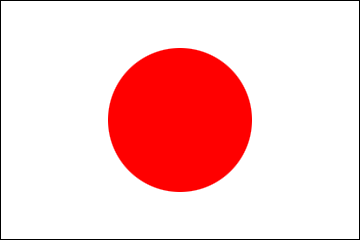Japan Provides Funding for Two Projects in the Province of Benguet
2016/6/24
Japan Information and Culture Center (JICC) - Press Release No. 32 - 2016
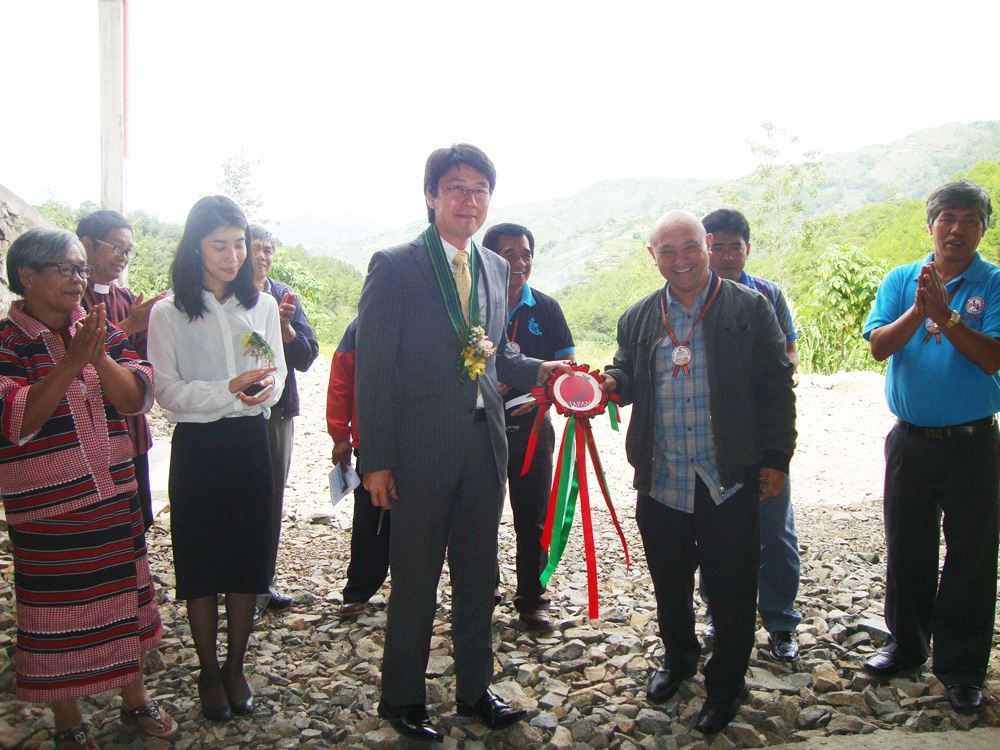
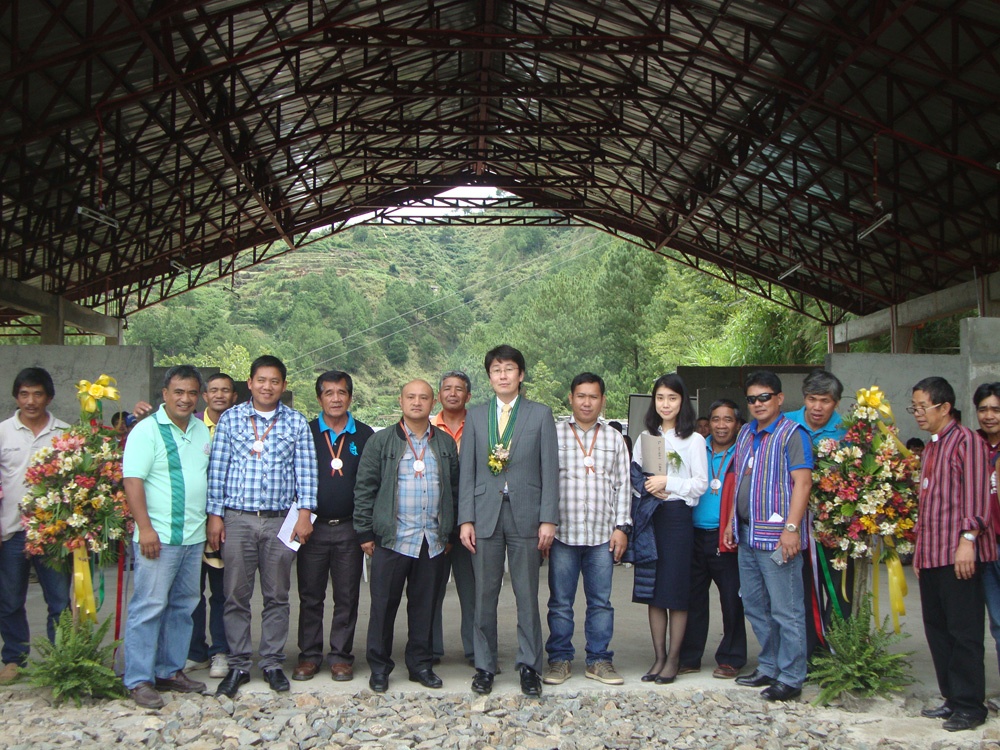
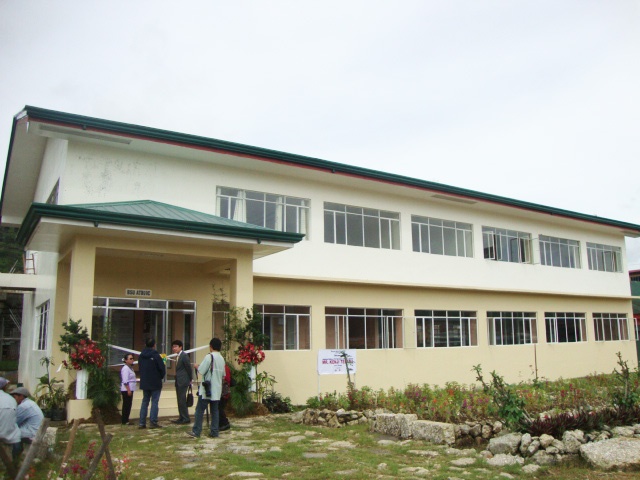
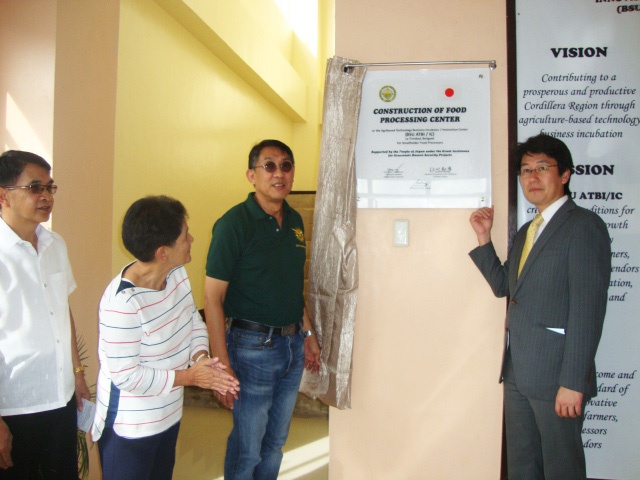
First Secretary Mr. Kenji Terada attended the turnover ceremony of two projects in the province of Benguet on June 21, 2016. “The Project for the Construction of Biodegradable Waste Composting for Environment Conservation and Farmland Soil Enrichment in the Municipality of Buguias” and “The Project for Construction of Food Processing Center in La Trinidad” are part of the Japan’s Official Development Assistance (ODA) under the Grant Assistance for Grassroots Human Security Projects (GGP).
The ceremony for the turnover of the Biodegradable Waste Composting Facility was attended by Mr. Melchor D. Diclas, Municipal Mayor of Buguias, Coordinator Ms. Waki Sasago, Japanese NGO “The Japan Agricultural Exchange Council” which instruct operation of this facility, and other officials and guests from the Local Government Unit (LGU) of Buguias. In 2015, the Embassy of Japan (EOJ) provided assistance to the LGU of Buguias amounting to Ninety One Thousand and Five Hundred Ninety Nine US Dollars (USD 91,599) or approximately Php 3.84 million pesos for the construction of an aerated biodegradable waste composting facility that will transform biodegradable waste products into organic fertilizers. It is expected that around 38,000 farmers of the municipality will benefit from this project not only through the reduction in production cost but also through the availability of safe and healthy food to the community. More importantly, this project will serve as a model for other municipailities on the efficient use of composting facility for waste management.
The turnover ceremony for the Food Processing Center was attended by Ms.Edna Tabanda, Municipal Mayor of La Trinidad, Dr. Feliciano G. Galora, President of the Benguet State University (BSU), as well as other guests and officials from BSU and LGU of La Trinidad. In 2011, the EOJ provided assistance to BSU amounting to US$ 107,806 (approximately 4.7 million pesos) for the construction of a food processing center that will utilize and provide value adding activities to locally available crops in the area. This facility, which primarily aims to process raw strawberries into jam, will improve the transportation and marketing of strawberry jams to other parts of the country. The implementation of this project is expected to benefit the 900 farmers in La Trinidad and nearby municipalities through the expansion of markets and the generation of around 200 employment every year.
Benguet is considered to be the biggest producer of vegetables in Northen Luzon. However, it is pointed that the province is constrained by the poor distribution network which causes massive deterioration in the quality and the reduction in the volume of products before reaching Metro Manila. The Japanese Government will continue to support the country’s agricultural system through the improvement of productivity, provision of value adding activities, and development of marketing and distribution channels. These initiatives will be conducted through a variety of schemes that would enhance the supply chain management in order to benefit both the farmers and consumers.
The Government of Japan, as the top ODA donor for the Philippines, launched the Grant Assistance for Grassroots Human Security Projects in the Philippines in 1989 for the purpose of reducing poverty and helping various communities engaged in grassroots activities. At present, 519 grassroots projects have been implemented by GGP. Japan believes that this project will not only strengthen the friendship between the peoples of Japan and the Philippines but also contribute in sustaining strategic partnership between the two countries.
The ceremony for the turnover of the Biodegradable Waste Composting Facility was attended by Mr. Melchor D. Diclas, Municipal Mayor of Buguias, Coordinator Ms. Waki Sasago, Japanese NGO “The Japan Agricultural Exchange Council” which instruct operation of this facility, and other officials and guests from the Local Government Unit (LGU) of Buguias. In 2015, the Embassy of Japan (EOJ) provided assistance to the LGU of Buguias amounting to Ninety One Thousand and Five Hundred Ninety Nine US Dollars (USD 91,599) or approximately Php 3.84 million pesos for the construction of an aerated biodegradable waste composting facility that will transform biodegradable waste products into organic fertilizers. It is expected that around 38,000 farmers of the municipality will benefit from this project not only through the reduction in production cost but also through the availability of safe and healthy food to the community. More importantly, this project will serve as a model for other municipailities on the efficient use of composting facility for waste management.
The turnover ceremony for the Food Processing Center was attended by Ms.Edna Tabanda, Municipal Mayor of La Trinidad, Dr. Feliciano G. Galora, President of the Benguet State University (BSU), as well as other guests and officials from BSU and LGU of La Trinidad. In 2011, the EOJ provided assistance to BSU amounting to US$ 107,806 (approximately 4.7 million pesos) for the construction of a food processing center that will utilize and provide value adding activities to locally available crops in the area. This facility, which primarily aims to process raw strawberries into jam, will improve the transportation and marketing of strawberry jams to other parts of the country. The implementation of this project is expected to benefit the 900 farmers in La Trinidad and nearby municipalities through the expansion of markets and the generation of around 200 employment every year.
Benguet is considered to be the biggest producer of vegetables in Northen Luzon. However, it is pointed that the province is constrained by the poor distribution network which causes massive deterioration in the quality and the reduction in the volume of products before reaching Metro Manila. The Japanese Government will continue to support the country’s agricultural system through the improvement of productivity, provision of value adding activities, and development of marketing and distribution channels. These initiatives will be conducted through a variety of schemes that would enhance the supply chain management in order to benefit both the farmers and consumers.
The Government of Japan, as the top ODA donor for the Philippines, launched the Grant Assistance for Grassroots Human Security Projects in the Philippines in 1989 for the purpose of reducing poverty and helping various communities engaged in grassroots activities. At present, 519 grassroots projects have been implemented by GGP. Japan believes that this project will not only strengthen the friendship between the peoples of Japan and the Philippines but also contribute in sustaining strategic partnership between the two countries.
